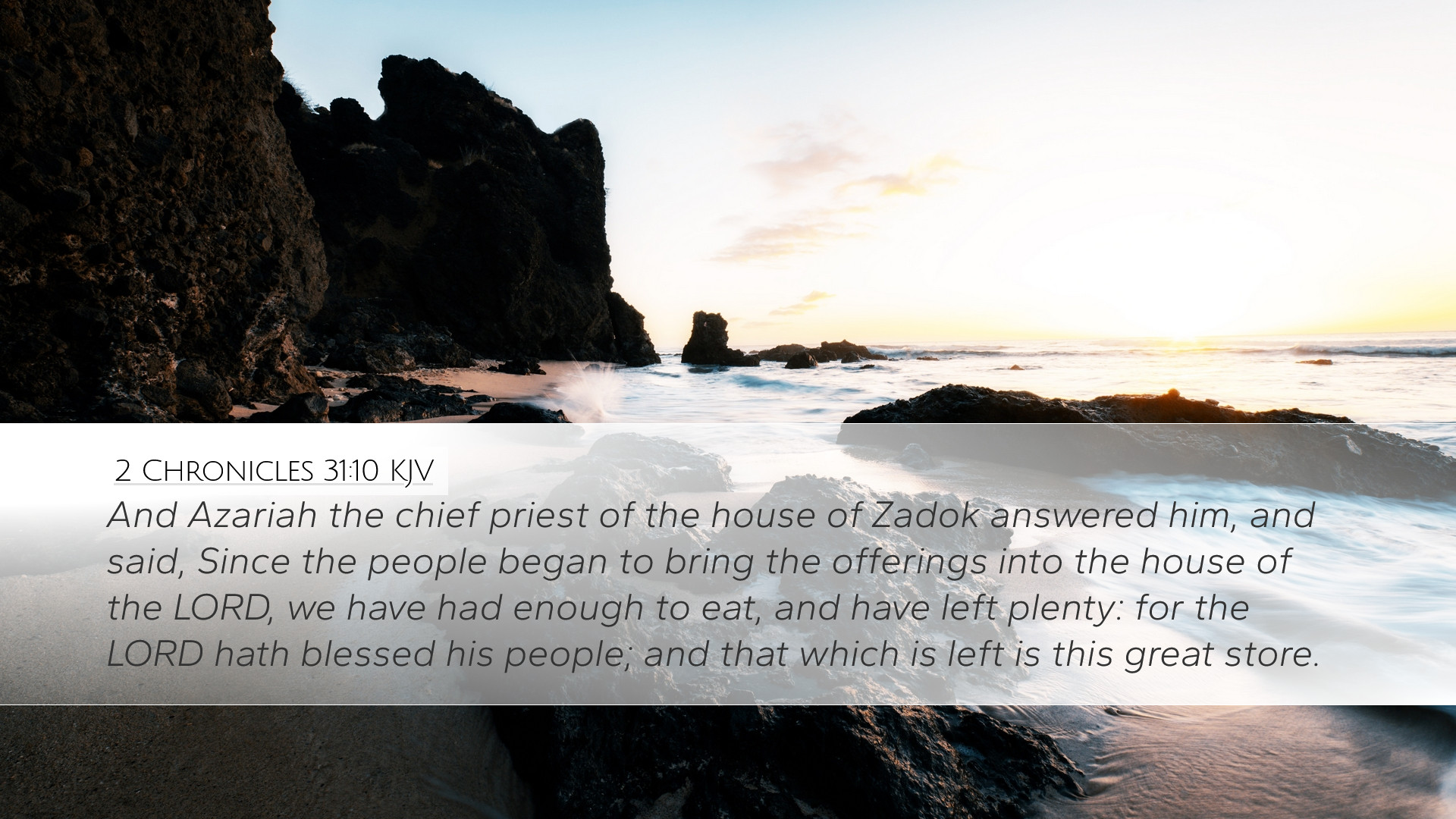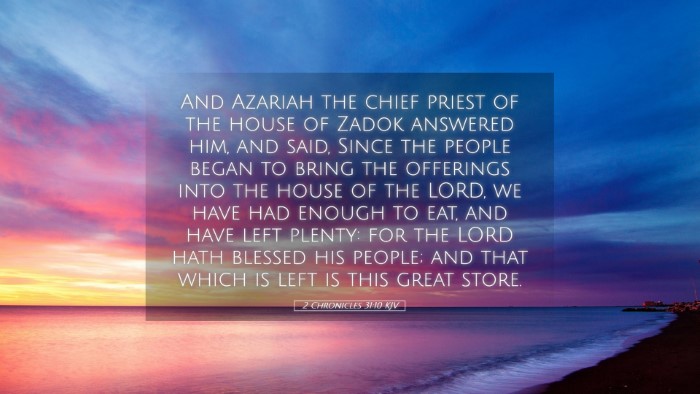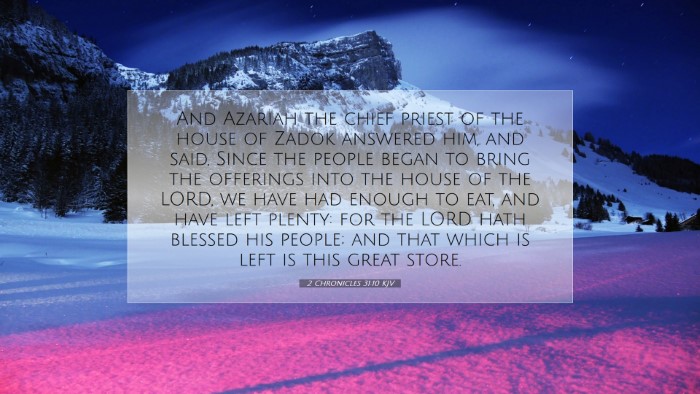Commentary on 2 Chronicles 31:10
Bible Verse: "And Azariah the chief priest of the house of Zadok answered him, and said, Since the people began to bring the offerings into the house of the Lord, we have had enough to eat, and have plenty left: for the Lord hath blessed his people; and that which is left is this great store."
Introduction
The verse centers on the significant financial and spiritual restoration within the Kingdom of Judah under King Hezekiah. It showcases the faithfulness of God in blessing His people, especially in their commitment to worship and provision for the Temple. The reflections from various commentaries provide insights into the historical context, theological implications, and practical applications of this verse.
Historical Context
- Restoration under Hezekiah: Hezekiah's reign marked a critical revival period, as he sought to restore true worship in Israel by cleansing the Temple, reestablishing the priesthood, and renewing the covenant with God.
- Offerings and Temple Service: The Israelites' offerings were central to maintaining the worship system, signifying their commitment to God and His covenant.
- Role of the Priests: Azariah, as the chief priest, represents the spiritual leaders who play a vital role in overseeing worship and maintaining the covenantal relationship between God and His people.
Theological Insights
This verse highlights several theological themes relevant to the understanding of God’s provision and blessings:
- God's Abundant Provision: The mention of enough to eat and plenty left emphasizes God's abundance. The blessings that overflow can be seen as a direct result of the people's obedience and devotion to God.
- Faithfulness of God: The root of the people’s prosperity is attributed to God's blessing. This reflects the principle that God honors those who honor Him, and His provisions are tied to the faithfulness of His people.
- Community and Worship: The collective act of bringing offerings to the Lord shows a community united in worship. This unity in worship serves as a building block for spiritual growth and communal strength.
Insights from Public Domain Commentaries
Matthew Henry
Henry remarks on the nature of blessings received as a direct response to the people’s faithfulness in their offerings. He emphasizes that spiritual restoration and the people’s willingness to return to God are met with divine favor. He notes that the chief priest’s declaration serves as an encouragement for the people to continue in their devotion, highlighting that true worship often results in God’s tangible blessings.
Albert Barnes
Barnes offers a practical take on the fulfillment of God’s promises. He points out how when individuals and communities align themselves with God's will, they experience tangible results in their lives, such as physical and spiritual abundance. The overflow in resources signifies not only physical sustenance but also spiritual vitality fueled by the continued worship and the right prioritization of God in their lives.
Adam Clarke
Clarke elaborates on the notion of "great store," indicating that it’s a manifestation of God’s grace and provision exceeding mere survival needs. He argues that this abundance signifies a call to generosity and sharing among the community. Clarke stresses the importance of recognizing God’s hand in provision while reminding readers of the responsibility that accompanies such blessings to serve and contribute to the welfare of others.
Practical Applications
This verse and its commentary illuminate several key applications for modern believers:
- Commitment to Worship: Just as the Israelites brought their offerings, believers today are called to commit their time, resources, and talents to God as an act of worship.
- Trust in God’s Provision: The assurance that God blesses those who honor Him encourages believers to trust in His provision and to test their faith through giving and service.
- Community Engagement: The importance of communal worship and contribution is highlighted, encouraging believers to engage actively in the church and broader community.
Conclusion
2 Chronicles 31:10 exemplifies God’s faithfulness to His people and their faithful response in worship. This passage serves as a reminder of the profound connection between spiritual devotion and the blessings that flow from God into the lives of His people. By integrating the insights from the leading biblical commentators, believers can gain a deeper understanding of the relevance of such a scripture for both individual lives and the church community today.


